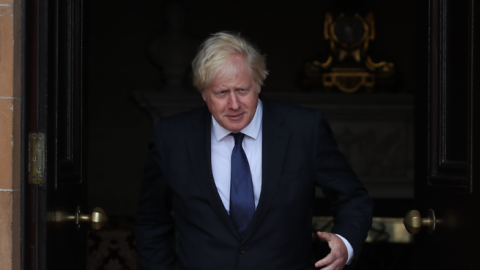Britain has gained the dubious achievement of being the “fat man of Europe”: a country with the highest percentage (64%) of citizens in western Europe who are overweight or obese. But if its rotund Prime Minister Boris Johnson has his way, that’s about to change – and food companies across the pond had better take notice.
Following his April hospitalization in intensive care with Covid-19, which he attributed to being obese, Johnson in July pushed through new restrictions to curb obesity in the UK. This caught people by surprise considering that Johnson was once the proud libertarian who in 2018 denounced the UK’s new tax on sugary beverages as a “continuing creep of the nanny state.”
But Covid-19 has provided the “wake up” call that obesity can have dire consequences and the pandemic has created a climate more susceptible to radical change. Hearing that a disproportionate number of deaths are from diet-related conditions, consumers are clamoring for healthier foods. That is putting food companies under the microscope for their corporate citizenship practices.
The UK’s hard-hitting, $13 million anti-obesity campaign includes measures that make food and beverage companies squirm. It bans TV and online advertising for high-fat, sugar and salt foods (HFSSs) before 9 p.m. What’s more, so-called “BOGO” promotions (Buy One, Get One free) are no longer allowed for unhealthy foods. In addition, restaurant menus must now include calorie counts, even for drinks. And chocolates, “crisps” (chips) and sweets have been banished from grocery checkout lines to curb impulse buys. The British government is even considering banning online advertising for unhealthy products altogether and beefing up current nutrition labeling on the front of product packaging.
If this seems radical, think again. The UK is not the only country to take tough steps to reduce obesity. A few days ago, Germany’s Federal Minister of Agriculture said she favors curbing advertising of junk food, citing that nation’s 15% childhood obesity rate, and the Mexican state of Oaxaca, with the highest child obesity rate in that country, passed a law banning the sale of high calorie “junk food” and sugary soft drinks to youth. And even before coronavirus hit, our Latin American neighbors had been implementing tough black stop sign labeling regulations along with punitive soda taxes.
Could such growing government restrictions spread to the U.S.? I have no doubt that they will – unless the food industry jumps in with both feet to making nutritious, healthier food widely accessible to all Americans. Incremental changes have not made a dent in curtailing rising obesity rates. And efforts have been spotty with packaged food companies making the most changes while the restaurant sector sits on the sidelines.
What trade associations and their member companies must realize is that more regulations can be expected in the U.S., especially if a Democrat is in the White House in 2021. Pressures to change are also being intensified by the largest cohort of consumers – Millennials, with Gen Z right behind them – who are demanding companies to take more responsibility for the healthiness of their products.
Big Food can no longer take a “do-what-we-must” attitude to reversing obesity. They must step up and actually move to solve the problem. Here are three crucial ways they can lead:
* Get ahead of imposed regulations instead of resisting change. While the evidence is mixed on the effectiveness of the UK mandates, food companies risk being on the wrong side of history. Instead of fighting public health initiatives, they can lead the way with research that defines workable steps to reverse the obesity crisis. This will help them avoid the fate of the soft drink industry, which resisted public health demands to sell fewer sugary beverages and has seen a 25% reduction in per capita soda consumption since its peak.
* Educate with public service ads. The food industry spent $11 billion on advertising in 2017, including $8.8 billion on marketing unhealthy foods, according to Nielsen data analyzed by the Rudd Center for Food Policy & Obesity at the University of Connecticut. It’s time that food and restaurant corporations air public service announcements (PSAs) about healthy eating and the impact of high sugar, salt and fat on health and obesity. This will not only serve the public’s interest, it also will demonstrate full transparency and generate trust and loyalty among consumers, especially the largest cohort – Millennials.
* Commit to a BHAG (”Big Hairy Audacious Goal”). Packaged food companies as part of the Healthy Weight Commitment Foundation almost a decade ago exceeded a commitment that eliminated over 6 trillion calories from the food supply. It’s time for the next bold leap. Companies must move beyond the mindset that “healthy” is an outlier and embrace the growth opportunities these products provide. They can decide, for instance, that at least 50% of the products they sell will be healthier versions or in smaller portions.
If the idiosyncratic and proudly libertarian Boris Johnson can finally wake up to the need for healthier eating, so can U.S. food companies. Denial is not a strategy. Bad diets have been uncovered by Covid-19 as links to mortality. The U.S. food industry must now get ahead of these tectonic changes before it is overwhelmed by them. A revolution is under way, and it needs to be on the right side.



















